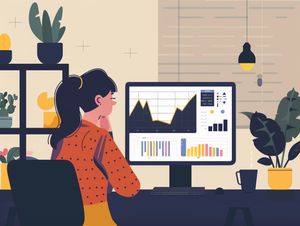Basic Forex Trading: Long and Short Trades #
Forex trading often revolves around two main types of trades: long trades and short trades.
-
Long Trade: This strategy involves betting that the price of a currency pair will rise in the future. For example, if you expect the Euro (EUR) to increase in value against the US Dollar (USD), you would place a long trade on EUR/USD. If the Euro rises, you sell your position for a profit.
-
Short Trade: In contrast, a short trade involves betting that the price of a currency pair will decline. If you expect the USD to weaken against the Euro, you would place a short trade on USD/EUR. As the currency pair decreases in value, you can buy it back at a lower price and profit from the difference.
Different Types of Forex Trading Strategies #
-
Scalp Trading: Scalp trading consists of holding positions for very short periods—seconds or minutes. These trades aim to make small profits based on the number of pips (price increments) gained. While each trade yields a minor profit, the cumulative effect can lead to significant earnings by the end of a trading day.
-
Day Trading: Day trading involves opening and closing trades within the same trading day. Traders take advantage of short-term market fluctuations, holding positions for minutes to hours but always exiting before the end of the day.
-
Swing Trading: Swing traders hold positions for longer periods, sometimes days or weeks. They look for larger market movements and are willing to withstand short-term volatility for the potential of larger profits.
Profit Potential in Forex #
In the Forex market, traders typically trade in lots. A standard lot is equivalent to 100,000 units of currency. For example, if you buy one lot of EUR/USD at a price of 1.13, you’re purchasing €100,000 for $113,000. If the price increases, even by a small amount like 10 pips (0.0010), the difference can net you a $100 profit.
However, the Forex market moves both ways, and losses can accumulate just as quickly as profits. That's why it's essential to have a clear understanding of technical and fundamental analysis and to practice different strategies before investing large amounts. For more insights, you can compare different brokers in our broker comparison guide.
Conclusion #
Forex trading offers multiple ways to make money, from long-term swing trades to short-term scalp trades. Whether you are betting on the price going up (long trades) or down (short trades), there are numerous strategies to choose from based on your risk tolerance and market outlook. By staying informed and practicing these techniques, traders can navigate the Forex market with confidence and profitability.









